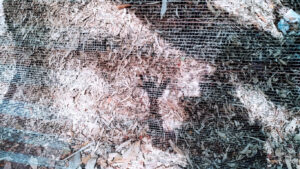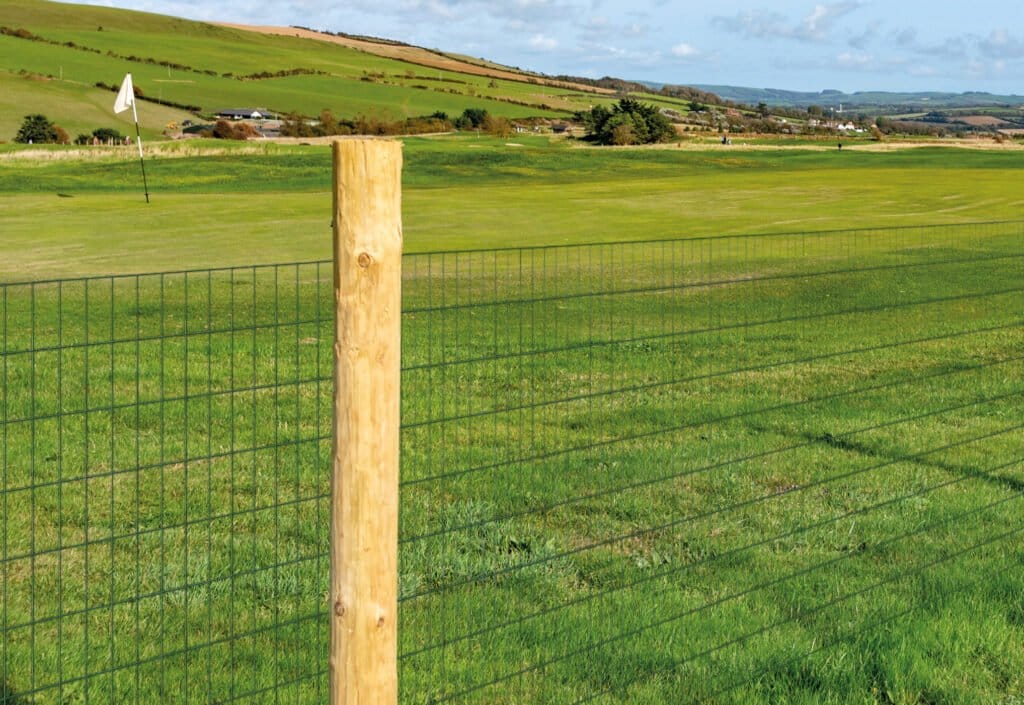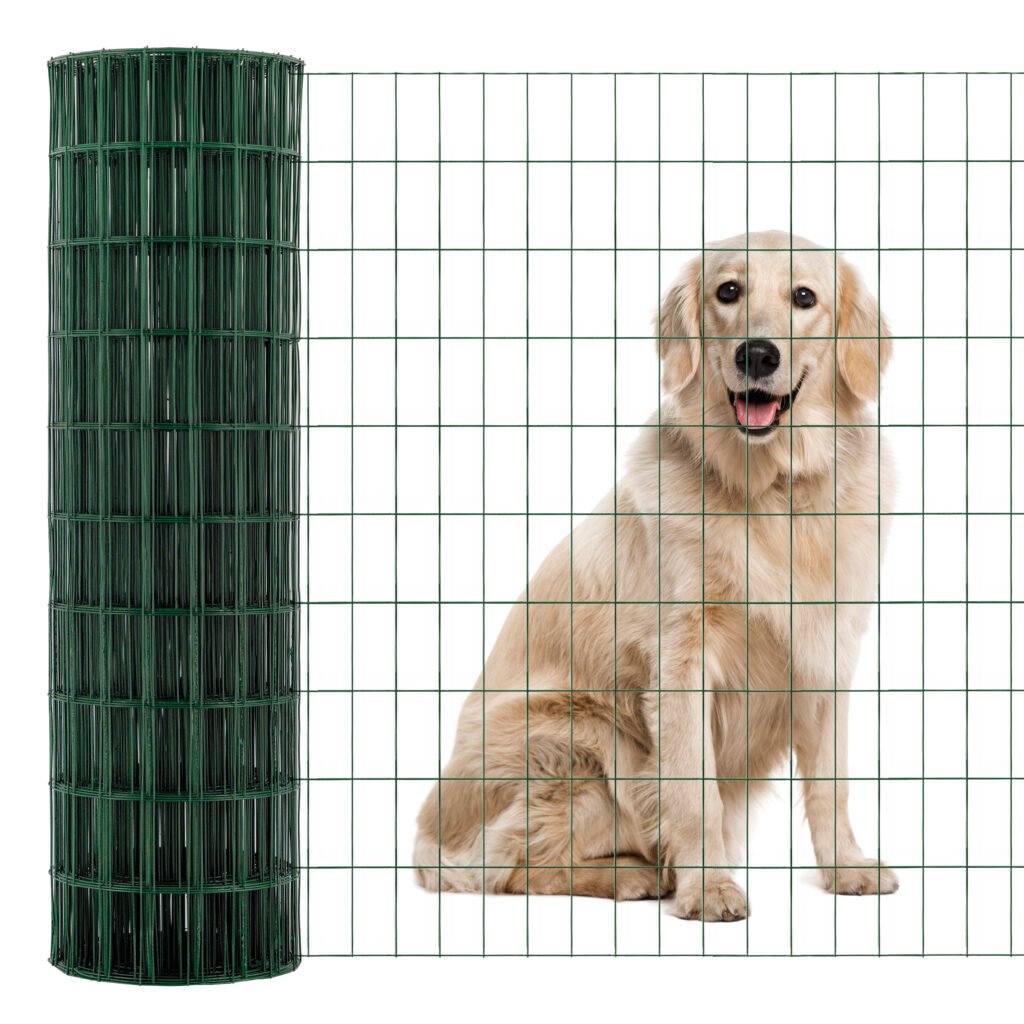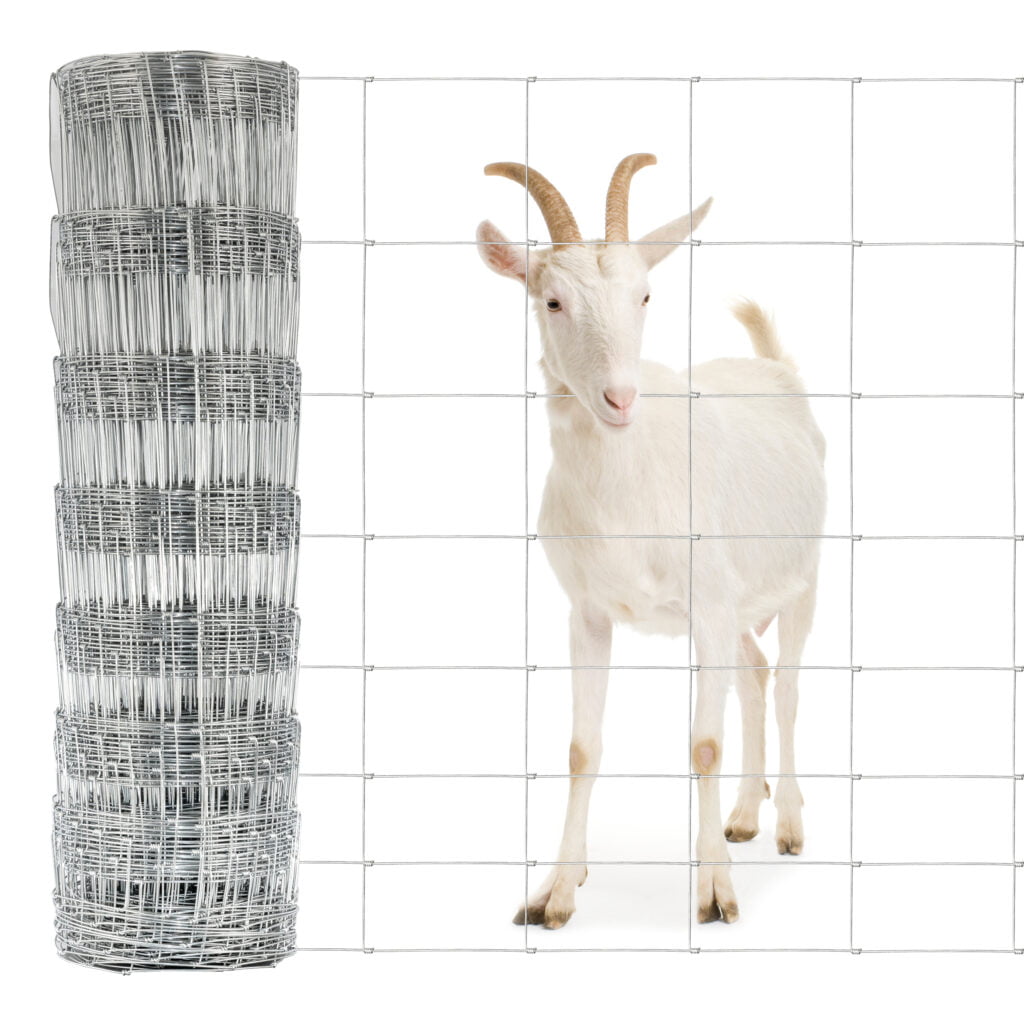









This guide is part of our series to outline everything that you need to know about our mesh products. We hope that you find it helpful and that it answers any questions that you may have.
Wire fencing mesh is a type of fencing material made from wire that is woven or welded together to form a mesh pattern. It is often used in construction, agriculture, and industrial settings as a barrier or enclosure. Wire mesh fencing can be made from various types of wire, including galvanized steel, stainless steel, and PVC-coated wire. The mesh size and wire gauge can vary depending on the intended use and the level of security required. Some common uses for wire mesh fencing include: security fencing, animal enclosures, garden fencing, construction site fencing and industrial fencing.
Wire green wire fencing mesh can be used to stop animals from entering or exiting a certain area. The mesh size and wire gauge can be chosen to suit the specific animal you are trying to contain, with smaller mesh sizes and thicker gauge wire being more effective at stopping larger animals. Green wire fencing mesh is often used to create animal enclosures, such as for livestock or pets.
It’s important to ensure that the fence is properly installed and maintained to prevent animals from finding ways to escape or get through the fence. It’s also important to consider the specific characteristics of the animals you are trying to contain, and make sure the fence design will be appropriate to the size, strength, and behaviour of the animal. Additionally, it is important to remember that the green colour is used for aesthetic reasons and it does not make the mesh more resistant or effective for animal containment.


Wire fencing, including welded wire mesh, can rust over time if it is not made of a rust-resistant material or if it is not properly maintained. Galvanized wire fencing is resistant to rust and corrosion, which will prolong the life of the fence. However, if the galvanization is damaged or worn off the wire may rust. Proper maintenance such as painting or coating the wire with a rust inhibitor can also help to prevent rust. If the wire fencing is already showing signs of rust, it is important to address the issue as soon as possible to prevent further deterioration.
PVC coated wire fencing, also known as vinyl coated wire fencing, is a type of wire fencing that is coated with a layer of PVC (polyvinyl chloride) plastic. This coating is applied to the wire to protect it from rust and corrosion, and to give it a more attractive appearance.
Green PVC coated wire fencing is designed to be resistant to rust and corrosion, so it will not rust as long as the coating is intact. However, it’s important to note that if the fencing is damaged, the underlying wire may be exposed to the elements and rust can occur.
PVC coated wire fencing is also more resistant to UV light than uncoated wire fencing, which means it will not fade or become brittle over time.
It’s important to note that PVC coated wire fencing should be handled with care and not to be bent or twisted, as the coating may crack or break, exposing the underlying wire to the elements. Also, it’s important to clean and maintain the fencing regularly to remove dirt and debris that may accumulate on the coating and cause it to deteriorate over time.
Yes, wire fencing mesh can be cut using the appropriate tools. For cutting smaller sections or individual wires, a pair of wire cutters or bolt cutters can be used. For cutting larger sections of wire mesh fencing, a power saw with a metal cutting blade may be more efficient. It’s important to wear protective gear such as gloves and safety glasses when cutting wire fencing mesh to protect yourself from potential injuries.
However, Keep in mind that cutting wire fencing mesh may affect its strength and integrity, so it’s important to be cautious when cutting and ensure that the remaining fence will still provide the necessary level of security or containment.
Yes, wire fencing mesh can be bent to a certain degree. The ease of bending will depend on the type of wire used and the mesh size. Thicker gauge wire and smaller mesh sizes will be more difficult to bend, while thinner gauge wire and larger mesh sizes will be more pliable.
You can use pliers, bolt cutters or a bending tool to bend wire fencing mesh. It’s important to wear protective gear such as gloves to protect your hands from the sharp edges of the wire.
However, keep in mind that bending wire fencing mesh may affect its strength and integrity, so it’s important to be cautious when bending and ensure that the fence will still provide the necessary level of security or containment. Additionally, excessive bending may cause the wire to break, so it’s important to not over-bend the mesh.
Installing green wire fencing can be a relatively straightforward process, but it does require some preparation and the use of the appropriate tools. Here are the general steps for installing a green wire fencing mesh:
It’s important to make sure that the fence is installed level and tight to prevent animals from getting through. Also, make sure that the fence is properly secured and anchored to prevent it from being pushed over or pulled out of the ground.
It’s also important to use the appropriate tools for the job, such as post-hole diggers, level, pliers, wire cutters, wire ties, and power tools if necessary.
It’s also important to follow any local building codes, zoning laws or regulations that apply to fence construction.
As always, thank you for checking out our blog. We hope that this helps you with your project.
Our goal for our blogs and help guides is to answer as many questions as possible to help to explain the possibilities of mesh to our customers. Contact our team today if you have any questions at all. We are always really keen to help in any way that we can.
The largest range of wire mesh, chicken wire, wire fencing, woven wire mesh and perforated metal products in Europe, delivered direct from our Warrington warehouse.




Website by: Beech Web Services | Terms and Conditions | Cookie Policy | Privacy Policy | Website Terms and Conditions